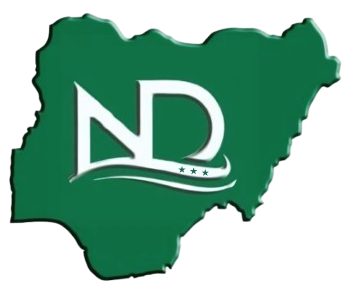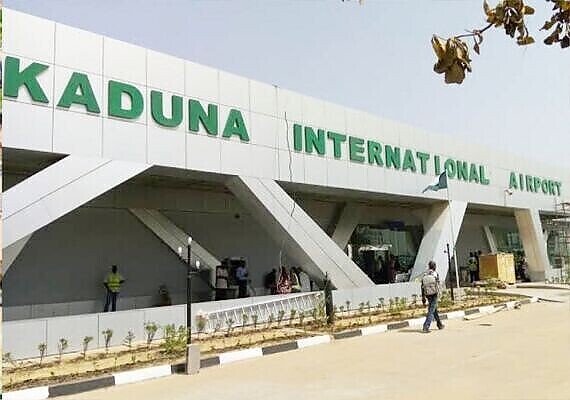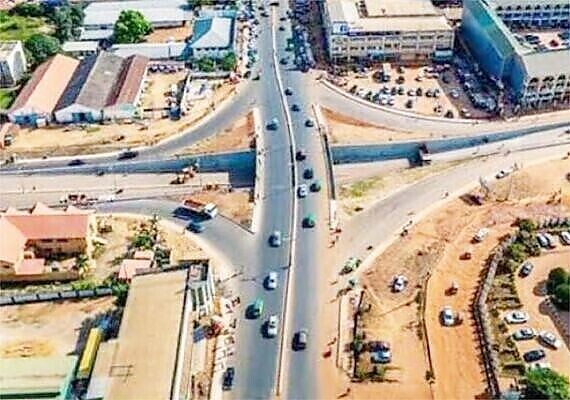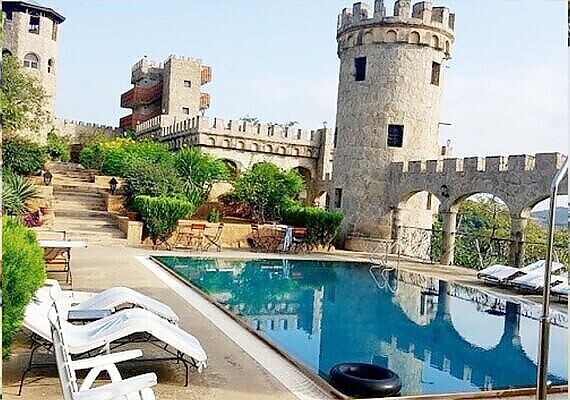- Government Organisation
- 44 Polytechnic Road, 44, Tudun Nupawa 800282, Kaduna, Nigeria
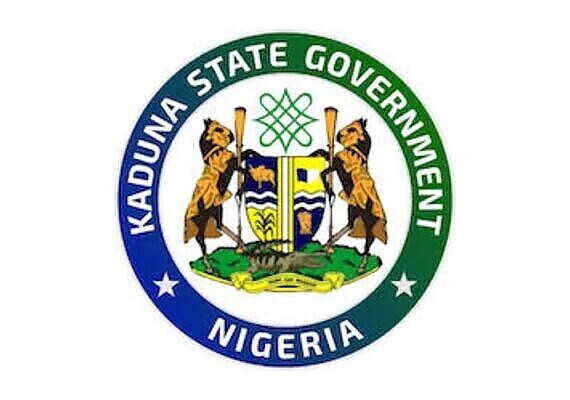
Kaduna State
Introduction to Kaduna State
Kaduna State (Hausa: Jihar Kaduna, جىِهَر كَدُنا; مدينة كدونا; Fula: Leydi Kaduna Tyap: Si̱tet Ka̱duna) is a state in the northwest geopolitical zone of Nigeria. The state capital is its namesake, the city of Kaduna, which was the 8th largest city in the country as of 2006. Created in 1967 as North-Central State, which also encompassed the modern Katsina State, Kaduna State achieved its current borders in 1987. Kaduna State is the fourth largest and third most populous state in the country, Kaduna State is nicknamed the Centre of Learning, owing to the presence of numerous educational institutions of importance within the state such as Ahmadu Bello University.
Modern Kaduna State is home to the sites of some of Africa’s oldest civilizations, including the Nok civilization that prospered from c. 1500 BC to c. 500 AD. In the 9th century, geographer and historian Ya’qubi documented the existence of the Hausa Kingdoms, which existed until the region was incorporated into the Sokoto Caliphate in the early 1800s. During the colonial era, the city of Kaduna was made the capital of Northern Nigeria Protectorate by British leadership.
The state economy is dependent on agriculture, especially cotton and groundnut production. In the modern era, Kaduna State has been the site of violent ethnic and religious conflict, with the 2002 Miss World riots in the state capital over purported blasphemy leading to around 250 deaths and the loss of homes for around 30,000.
Etymology
The most widespread etymology for the word Kaduna is that, it is a corruption of the Hausa plural for crocodile, kadduna, as there used to be many crocodiles in the Kaduna River. Another version of the etymology of the name is a narrative linked to the Gbagyi word/name ‘Odna’ for the Kaduna River.
History
Zazzau, a traditional state which lies within the province’s capital, is said to have been founded in 1536. It would later be renamed to Zaria after the younger sister of Queen Amina. The Hausa people of Zaria are said to be the old ancestral of the region.
It is indicative that the name, Kaduna, was taken up by Lord Frederick Lugard and his colonial colleagues when they moved the capital of the then Northern Region from Zungeru to Kaduna City in 1916. This move of the colonial office to Kaduna city started in 1912–1918/20, with the initial effort having been made in 1902 from Jebba to Zungeru.
At the start of British colonial rule in northern Nigeria, the people groups who lived in the area became ‘Northern Nigerians’- a construct which continues even today. By 1967 these people groups again carved into ‘North Central State’; this was the case until 1975 that ‘Kaduna State’ was formerly created by the then military leader, Gen. Murtala Mohammed, with all distinct identities amalgamated into one state without a referendum. The state hence is the successor of the old Northern Region of Nigeria, which had its capital at Kaduna which is now the state capital to about 6.3 million people (Nigerian census figure, 2006).
In 1967, the old Northern Region was divided into six states in the north, leaving Kaduna as the capital of North-Central State, whose name was changed to Kaduna State in 1976. Meanwhile, Kaduna State was further divided in 1987, creating Katsina State. Under the governance of Kaduna are the ancient cities of Zaria, Kafanchan, and Nok. The most intriguing aspect of this area is that the colonial construction and its post-colonial successor called ‘Nigeria’ hardly documented the history or the method of how Kaduna State’s people groups encompassed in these constructs define and identify themselves. As such, the people groups who populate the area have lived in near oblivion or obscurity as they are often thought of as Hausa people In 2019 Kaduna State celebrated its 100-year anniversary, making it one of the oldest states in Nigeria.
In 2021, Kaduna State was the site of several major attacks done by bandits involved in the Nigerian bandit conflict. On 24 February, at least 34 were killed in attacks in Kaduna and neighboring Katsina state. On 11 March, 39 students were kidnapped when gunmen attacked the Federal College of Forestry Mechanization. On 20 April, in another raid by bandits on Greenfield University students and staff, 22 were kidnapped and 6 of them were killed. On 5 July, a further 140 students were kidnapped from Bethel Baptist High School. Attacks have continued into 2022, 2023, and 2024.
Geography
The state is located at the Northern part of Nigeria’s high plains. The vegetation cover is Sudan Savannah type, characterized by scattered short trees, shrubs and grasses. The soil is mostly loamy to sandy. A substantial amount of clay is found also.
Its northern half became Katsina state in 1987. The state is bordered by seven states: Zamfara for 117 km (73 miles) and Katsina for 161 km (100 miles) to the north, Kano to the north-east for 255 km, Bauchi and Plateau to the east, Nasarawa and Abuja Federal Capital Territory (for 45 km) to the south, and Niger to the west. The Kaduna state is located between latitude 10°38’58” N and 10°25’36” N and to longitude 7°22’14” E and 7°32’00” E.
The state was ranked number four by total area of land and number three by population.
The Kaduna River, a tributary of the Niger River, flows through the state. There are rocky stones in Zaria and Kogoro Hill. Many communities are prone to seasonal flooding during the rainy season.
Climate
The rainy season in Kaduna is hot, humid, and cloudy, while the dry season is hot and partly cloudy. Throughout the year, the temperature rarely falls below 50 °F or rises above 102 °F, usually ranging between 55 °F and 95 °F.
Government
The current governor of Kaduna state is legally under the control of Kaduna State Executives, Kaduna State House of Assembly and Kaduna State Judiciary. The current elected governor of the state is Senator Uba Sani and his deputy is Hadiza Sabuwa Balarabe. In the state there 14 ministries that operate with the state government to improve the state: Ministries of Kaduna State. Within each Ministry there are multiple agencies with regulatory authority, such as the Kaduna State Environmental Protection Authority which overseas waste, water, and other environmental quality issues.
The governor of the state said he is trying to restore togetherness back in the state to make it hospitable for all Nigerians just as it has always been in the past. According to him, the city is now divided due to the frequent communal clashes that have been occurring in the last two decades.
Economics
The Kaduna State economy was ranked 15th largest state in Nigerian economy from 2002 to 2008, and it made up 3.3% of Nigerian GDP. While agriculture contributed 30% of SGDP in Kaduna. Kaduna state cultivate cotton and peanuts (groundnuts) for exporting and domestic extraction of Peanut oil. In the state there is National Institute of Leather and Technology, to improve modern technology and traditional method.
Media
In Kaduna State there are many means of communication through mass media, broadcasting, internet communication and banking transaction. In Kaduna State, there are 21 radio stations and more than 4 television stations broadcasting. Many of them are owned by the state government or federal government, and a few are private. The following is a list of radio stations in Kaduna:
- Brila FM 88.9
- Kada 2 FM, Kaduna (KSMC) 89.9
- Rockside FM, Kafanchan (KSMC) 89.9
- Capital Sounds FM, Kaduna (KSMC) 90.9
- Liberty Radio (English) Kaduna 91.7
- Karama FM, Kaduna (FRCN) 92.1 Tumbin giwa
- Freedom Radio FM, Kaduna 92.9
- Vision FM Kaduna 92.5
- FCE Zaria FM 93.7
- Queen FM, Zaria (KSMC) 94.1
- Supreme FM, Kaduna (FRCN) 96.1
- Alheri Radio FM, Kaduna 97.7
- ASU FM (Kaduna State University Radio) 98.5
- Invicta FM, Kaduna 98.9
- Human Right Radio Kaduna 99.9
- BU Samaru FM, Zari 101.
- Teachers Radio (Nigeria Institute of Teachers, NTI) 102.5
- Spider FM (Kaduna Polytechnic Radio) 102.7
- Liberty Radio (Hausa) Kaduna 103.1 Tashar Yanci
- Ray Power FM Kaduna 106.5
- Demographics 106.5
Religion
The main religions in Kaduna State are Islam and Christianity while some minority ethnic groups practice traditional worshiping, mostly in the southern area of the state. The people of Kaduna are very religious, causing two religious crises in 2001 and 2002, the Miss World riots.
Education
Kaduna is one of the largest centres of education in Nigeria. The slogan of the state is Center of Learning because of the presence of many institution like Ahmadu Bello University (established 1962). There are many government schools, include primary schools and secondary schools. All secondary schools in Kaduna are owned by the state government, federal government or private organisations. there are many tertiary institutions in the state. The state also has colleges for transportation and agriculture.
Universities and institutes
- Ahmadu Bello University, Zaria
- Air Force Institute of Technology (Nigeria)
- Federal College of Education, Zaria
- Greenfield University Kaduna
- Kaduna Polytechnic (1968), Kaduna
- Kaduna State University
- National Open University of Nigeria, Kaduna Study Center
- Nigerian College of Aviation Technology, Palladan Zaria
- Nigerian Defence Academy (NDA), Kaduna
- Nuhu Bamalli Polytechnic, Zaria
Secondary schools and colleges
- Barewa College
- Essence International School
- Nigerian Military School
Transportation
Federal Highways are:
- A2 north from Abuja FCT at Sabon Wuse as the Abuja-Kaduna-Zaria Expressway via Kaduna and Zaria to Kano State as the Kaduna-Kano Rd or
- Zaria Rd at Gidan Mallam Idi (part of the African Unity Road or Trans-Sahara Highway or Trans African 2: TAH2),
- A3 northeast from Nasarawa State at Barimaw as the Makurdi-Jos Rd to Plateau State at Jenta,
- A11 east from A2 at Katabu to A236 at Pambeguwa,
- A125 east from Niger State at Gishiri to A2 north of Kaduna,
- A126 northwest from A236 in Zaria as the Zaria-Funtua Rd to Katsina State at Gangara,
- A235 southeast from A2 south of Kaduna via Doka, Gumel and Kafanchan to A3 at Nimbia Forest Reserve,
- A236 southeast from A2 at Zaria as the Zaria-Pambeguwa Rd to Plateau State at Jengre as the Pambeguwa-Jengre Rd.
Other major roads include:
- the Dan Dume-Birnin Gwai Rd north from A125 via Malam Mudi to Katsina State at Ungwan Chitumu,
- the Malam Mudi-Zaria Rd east to A2,
- the Makarf-Gubuchi Rd southeast from A2 at Mai-Rijiya as the Ikara-Kargi Rd to Babinda on A236 as the Babinda-Nasari-Damau Rd,
south from A236 at Kubanni via Wuchichiri, Matari and Dan Jaba to A11 at Tama B, - the Tarau-Sabon Birni Rd north from A236 at Jaja to Bauchi State at Agaji,
- the Lidin-Doka-Gidan Sarkin Rd south from A236 at Jaja via Lere and Doka to the Garun Kuama-Pari Rd via Mariri, Damakasuwa and Zaman Dabo to Samaru,
- the Kagoro-Samaru-Pari Junction Rd continues south from Samaru to A235 at Kagoro,
- the Kachia-Zonkwa Rd east from A235 at Gumel via Fadan Kamantan, and Zonkwa to Samaru to Manchok
- the Jos-Kafanchan Rd east from Manchok to Plateau State,
- west from A2 at Gidan Bahagu to Niger State at Gidan Wakili,
- southwest from A2 at Dutsi Hill to Niger State near Rijana.
Railways
- the 1435 mm Lagos-Kano Standard Gauge Line is complete from Abuja via Minna in Niger State to Rigasa Station in Kaduna (2016), replacing part of the 1067 mm Cape gauge Western Line which continues north via Kano to Nguru. Kaduna is also connected by the Linking Line to Kafanchan with the Cape Gauge Eastern Line north from Lafia in Nasarawa State to Jos in Plateau State.
Airports
- Kaduna International Airport (1982).
Architecture
Architecture includes the National Museum which was built in 1975 with archaeological and ethnographic exhibitions, the Kajuru Castle, Lugard Hall, Zaria walls and gates and Nok settlements. In the state there are many architectural buildings like Ahmadu Bello Stadium, Murtala Square, Investment house, Kaduna central market, and Sultan Bello Mosque. The palace of empire of Zazzau is one of the oldest traditional buildings in Kaduna state.
Traditional architecture
In Kaduna State there are a lot of ethnic groups, which lead to the variation of culture and architectural style, this include the city wall of Zaria. The walls constructed during the reigns of Queen Amina of Zazzau protected the city and they are between 14 and 16 km long, and are closed by eight gates, Also the Emir’s Palace of Zaria is an important traditional heritage. The palace has luxurious interiors. The St. Bartholomew’s Church Zaria, built by the Church Missionary Society in 1929, still stands in Zaria, the church was built based on Hausa traditional architecture.
Modern architecture
Modern architecture is present in the state as a result of civilization and development. Most of these architectural buildings were built by the federal or state government, while the residential ones are mostly built by individuals; these buildings include Ahmadu Bello Stadium, Ten storey building, Investment house, federal secretary, Ranchers Bees Stadium, and Murtala square.
Health
Kaduna State has over 1,000 primary healthcare facilities to cater to every resident, even in the most remote village or ward of the state. To further improve on healthcare delivery, in 2016, the Kaduna State Government partnered with the UK Department for International Development (DFID) to install over 1.3 megawatts of solar power in primary healthcare facilities across the state.
Sports
In Kaduna State many sports are played, such as football, golf, swimming, traditional wrestling and handball. The Kaduna State government run a football club called Kaduna United F.C. The club participated in playing Nigerian Professional Football League but are under relegation. The state also hosts the Kaduna Marathon.
Entertainment and tourism
In Kaduna State an annual festival is organized by Ministry of Culture and Tourism (Kaduna State). The festival exposes folklore talent and through these process, to promote unity and encourage tourism and build culture in the State. It takes place every November or December. Cultural activities include Eid al-Fitr and Eid al-Adha performed by the Muslims in the state; the Tuk Ham; the Afan National Festival; the Christmas and Easter celebrations, by Christians, and the Kallan-Kowa celebrations. Kaduna has a museum and a park, the Kofar Gamji park and Zoo. Lord Lugard’s Residence, is also a tourist attraction and it currently houses the state assembly.
Festivals
- Eid al-Fitr and Eid al-Adha: This celebration is scheduled on the 1st of Shawwal and the 10th of Dhu al-Hijjah respectively according to the Islamic Calendar for three days usually in Kaduna, Usually, Muslims all over the world celebrate the end of the Ramadan fasting period and the conclusion of the hajj (pilgrimage) rites. Most of the emirates in Kaduna State and other parts of the northern Emirates celebrate it with a colourful Hausa traditional dressing, horse decoration and Durbar.
- Christmas celebrations: This takes place in every 25/26 December in Kaduna State to celebrate the birth of Jesus Christ by Christians all over the state.
- Easter celebrations: It takes place every March/April to remember the death and resurrection of Jesus Christ by all Christians in Kaduna State.
- Afan National Festival: This is a celebration on every 1 January, in Kagoro. The festival has assumed an international standard with the sons and daughters of Agworok land coming together to discuss issues that required their attention and to show their extreme cultural heritage.
- Kalankuwa Cultural Festival: It is a purely cultural festival that is celebrated in northern part of the state. It is a celebration to give thanks for good farm crops and to celebrate the season. It is celebrated in November/December. Young men and women come together in a peaceful manner to entertain themselves. It is celebrated in Bomo Village, Samara, in Sabon Gari local government area.
Other small festivals include the following:
• Batadon Festival
• Ayet Atyap annual cultural festival
• Durbar Festival
• Kaduna State Festival of Arts and Culture
• Kafanchan Day
• Kalankuwa Cultural Festival
• Moro’a Cultural Festival
• Ninzo Cultural Festival
• Zunzuk Dance
• Tuk-Ham Festival
• Unum-Akulu Festival
Tourism
• Kamuku National Park
• Matsiriga Waterfalls
• Kajuru Castle
• Arewa House
• Murtala Square
Conclusion
Kaduna State, often referred to as the “Centre of Learning,” stands as a testament to Nigeria’s rich cultural, historical, and economic diversity. From its ancient roots as the home of the Nok civilization to its modern-day status as a hub of education, agriculture, and industry, Kaduna has played a pivotal role in shaping the narrative of Northern Nigeria. Its capital, Kaduna City, serves as a melting pot of ethnicities, religions, and traditions, embodying the state’s nickname, “The State of Harmony.”
Despite its many strengths, Kaduna State faces significant challenges, including ethnic and religious tensions, security concerns, and the need for infrastructural development. However, the state continues to strive for progress, with initiatives aimed at fostering unity, improving education, and boosting economic growth through agriculture, manufacturing, and tourism.
Kaduna’s rich cultural heritage, exemplified by its festivals, traditional architecture, and historical landmarks, offers a glimpse into Nigeria’s past while paving the way for a brighter future. As the state continues to evolve, its resilience and commitment to harmony and development remain a beacon of hope for its people and the nation at large. Whether as a center of learning, a historical treasure, or an economic powerhouse, Kaduna State remains an integral part of Nigeria’s story, embodying the spirit of unity in diversity.
Business Amenities
- Car Parking
-
 Government Organisation
Government Organisation
Contact Information
Opening Hours
Contact Business
Contact Business
Additional Information
Additional info

Subscribe now to get direct updates
Join Naijadirectory Newsletter

